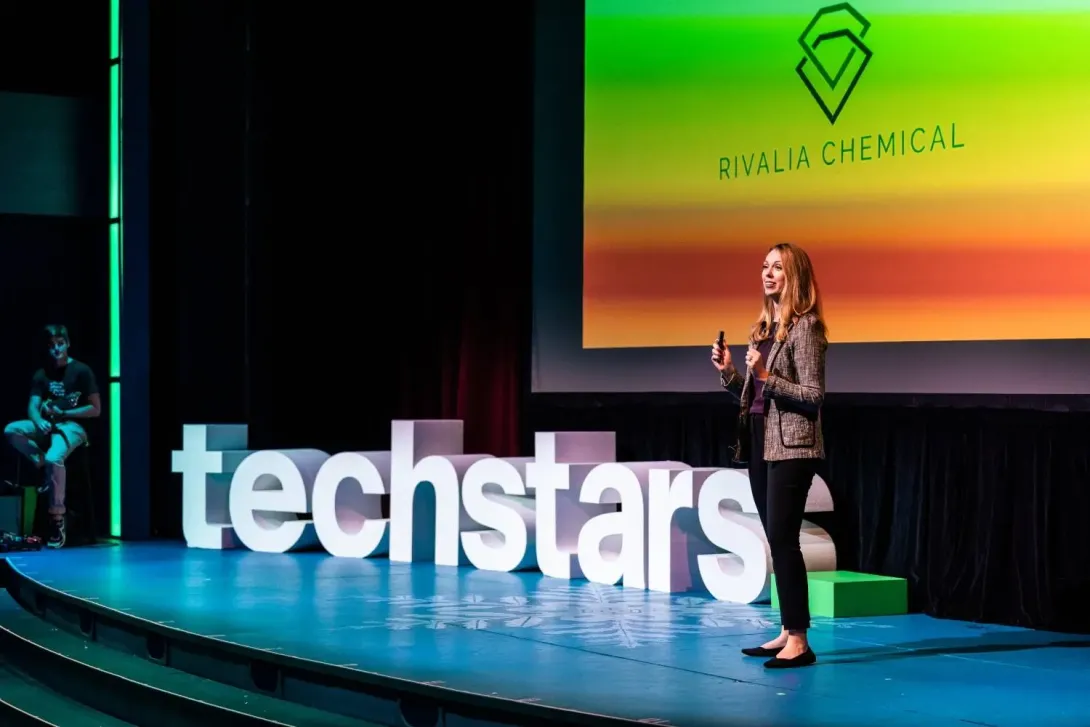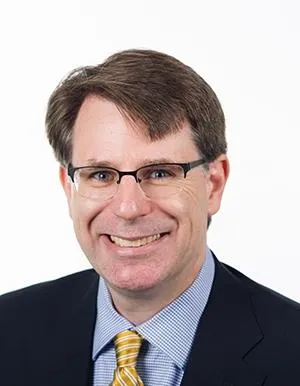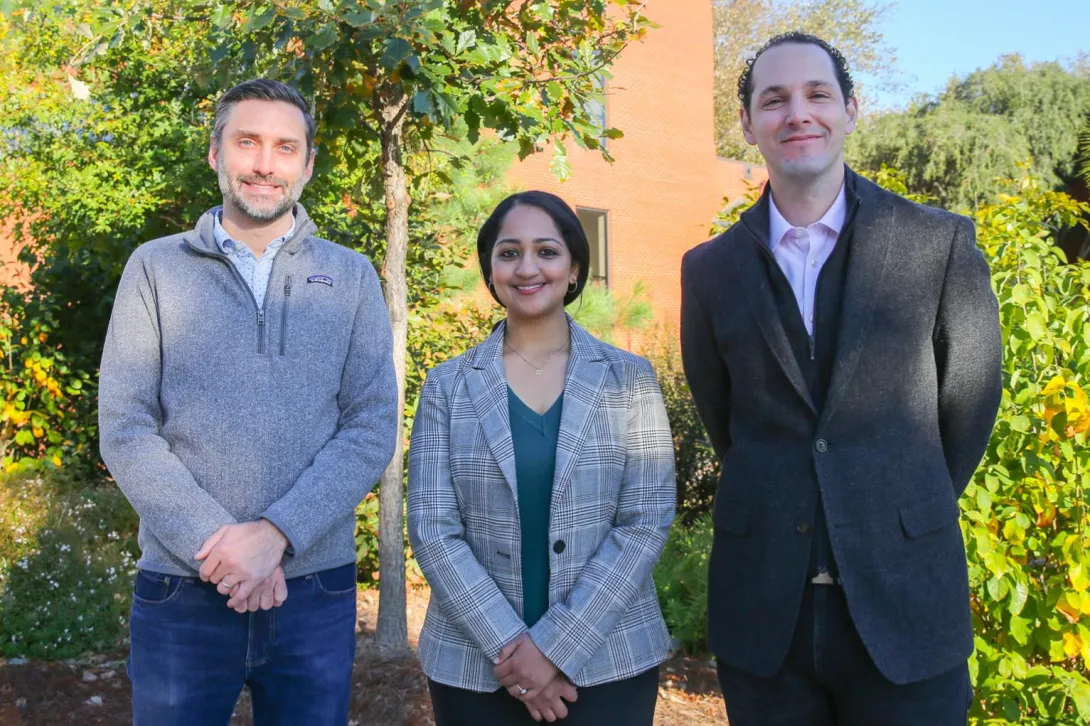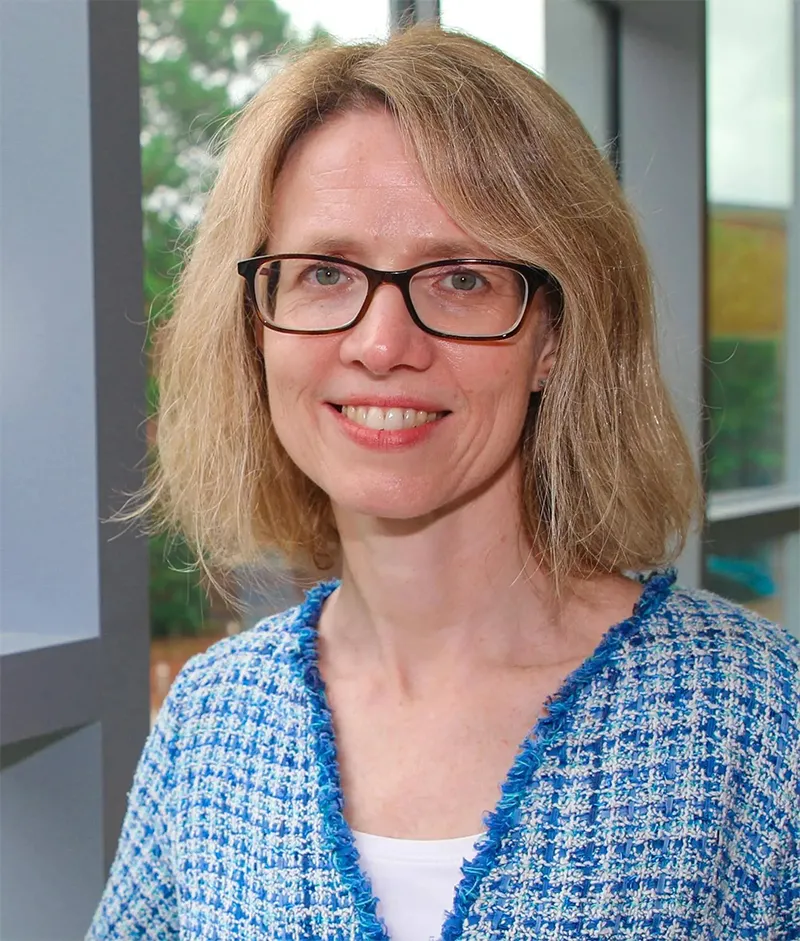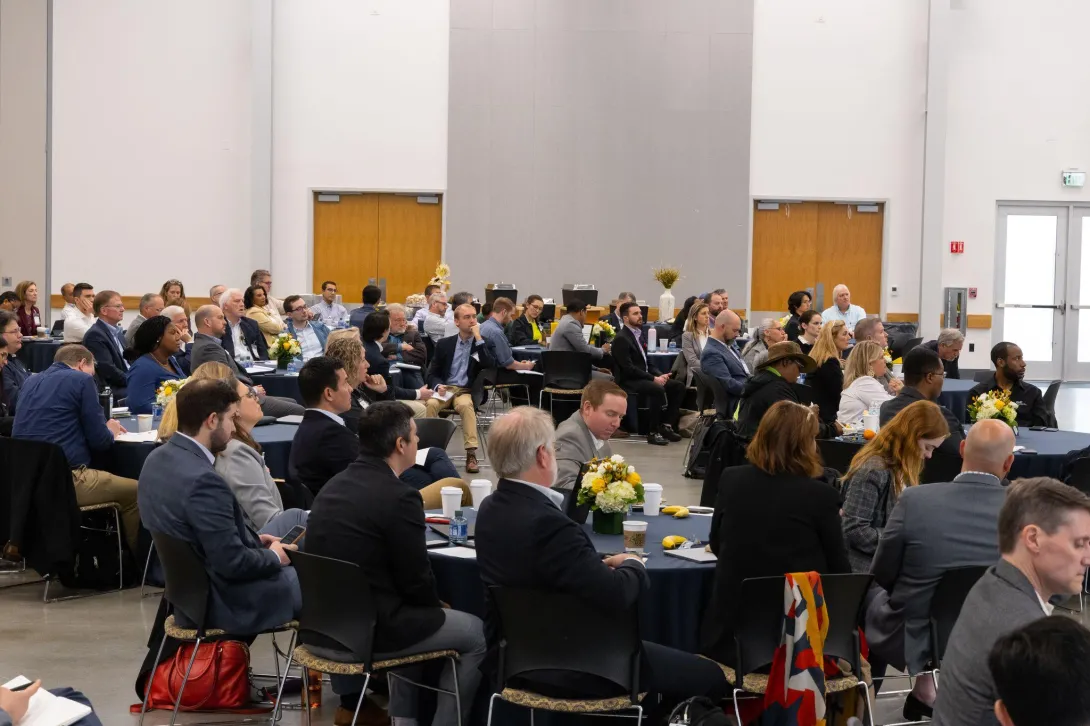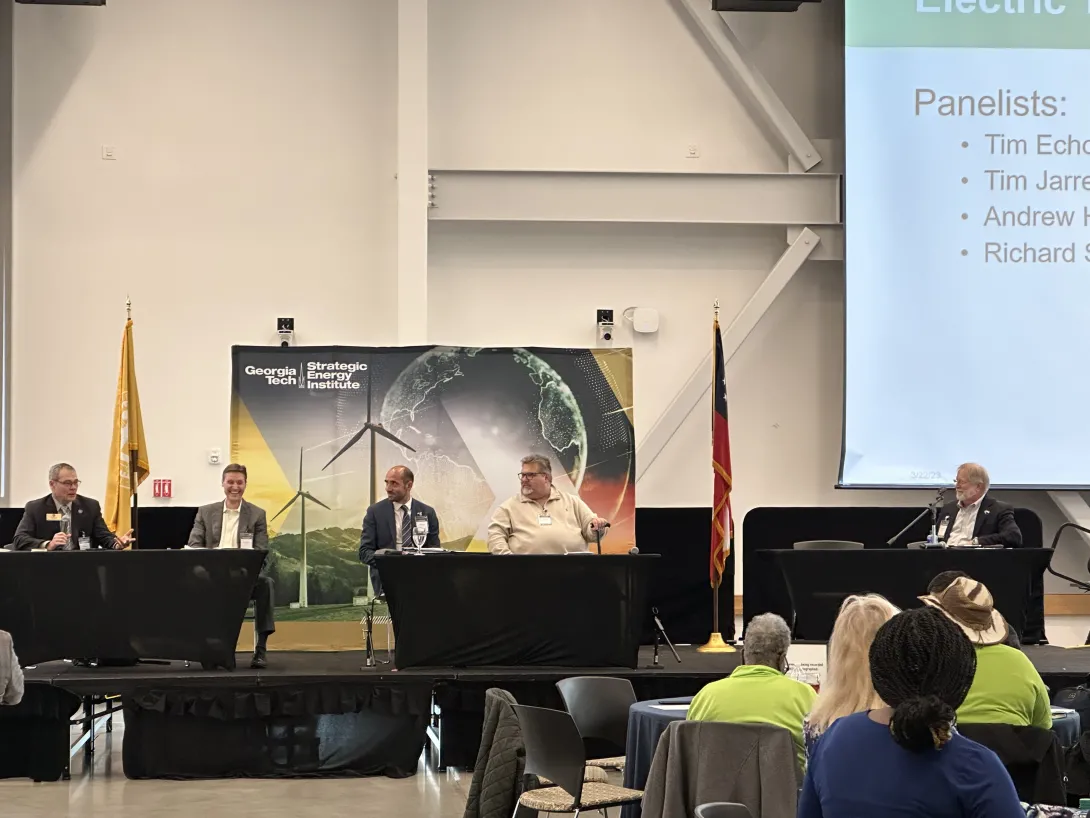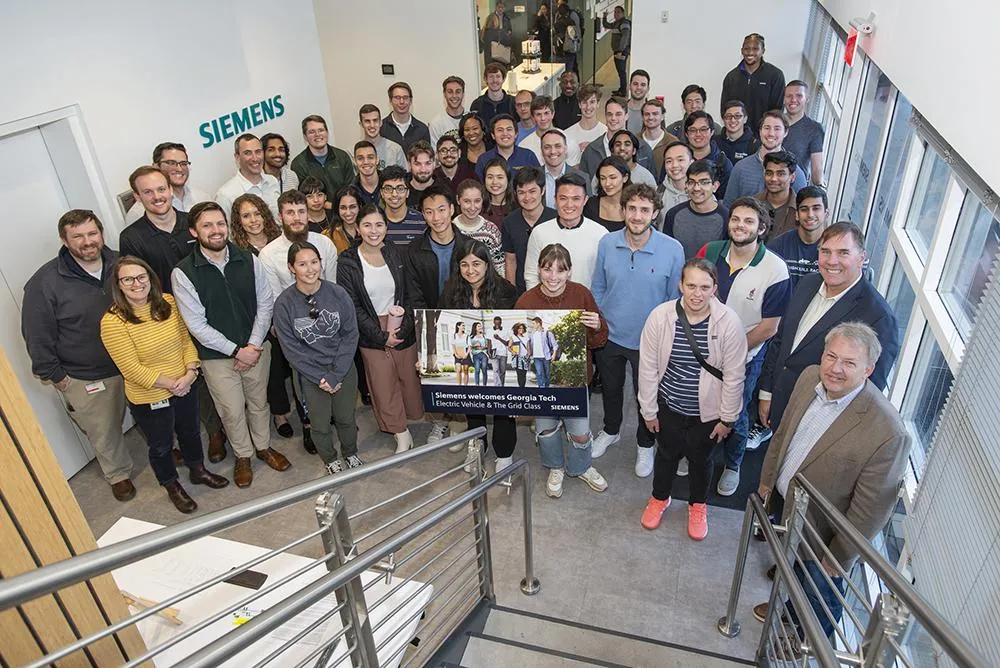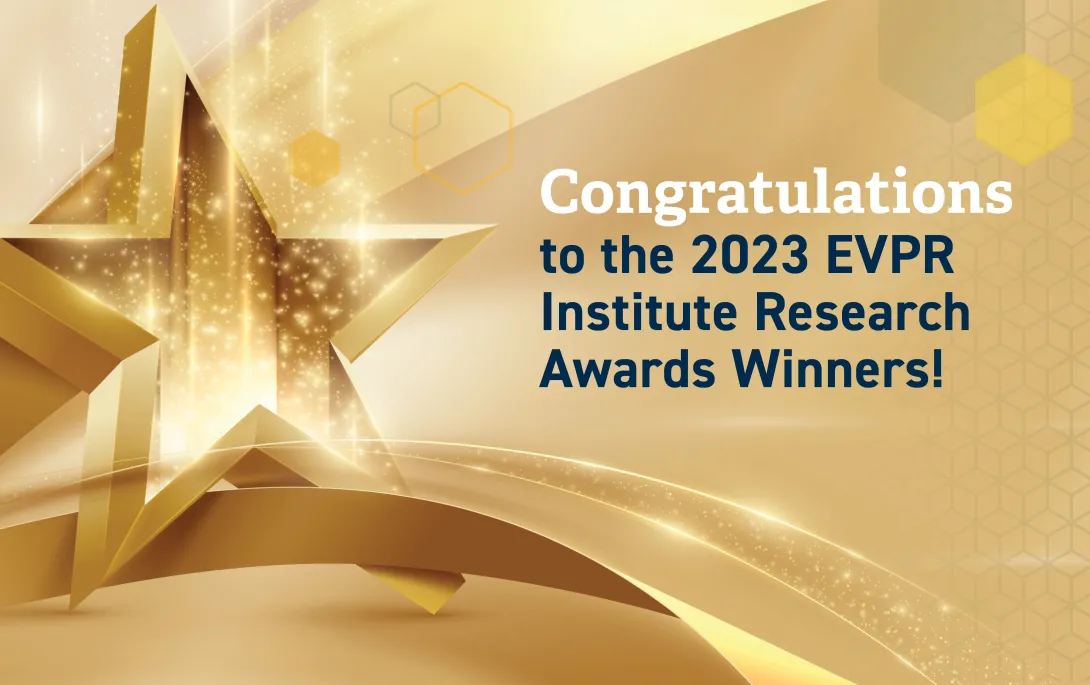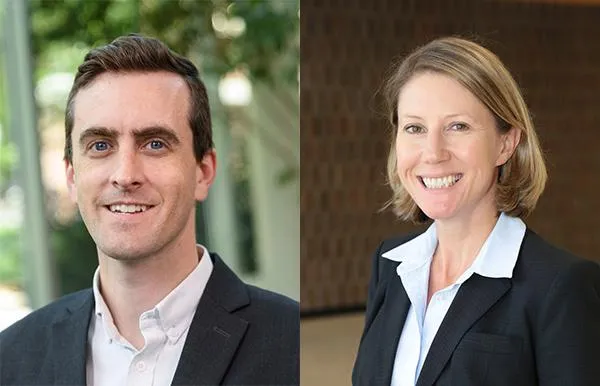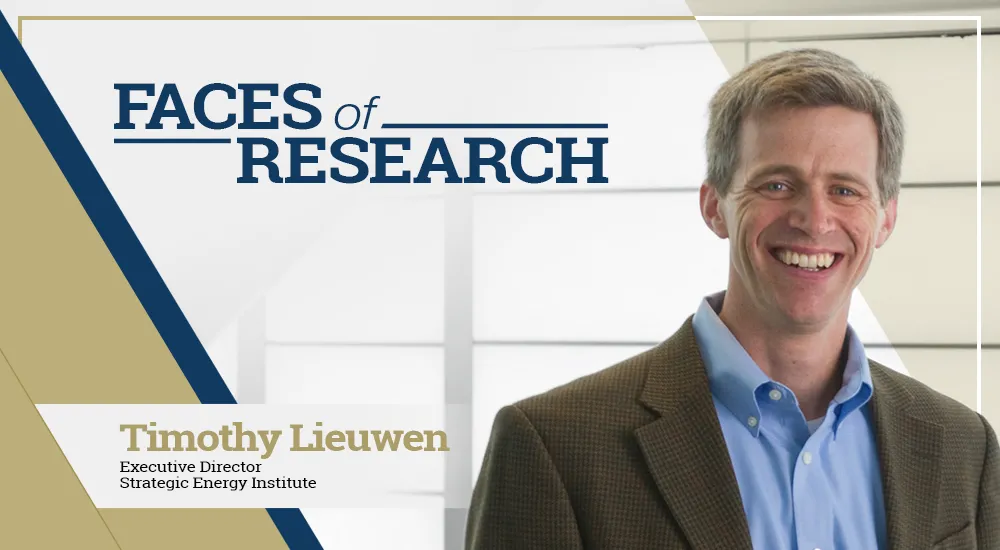Sep. 06, 2024
Since leaving Georgia Tech, Laura (Mast) Stoy, PhD EnvE 21, has continued to pursue her research, this time as an entrepreneur.
The environmental engineering graduate founded Rivalia Chemical Co. with her sights set on commercializing her work as a PhD student. Over the past two years, Stoy has been selected for a competitive business incubator and a prestigious fellowship for entrepreneurs.
Stoy and her advisor, Turnipseed Family Chair and Professor Ching-Hua Huang, discovered that by applying an ionic liquid directly to solid coal fly ash, rare-earth elements (REEs) can be successfully removed in a safe process that creates little waste.
REEs are a set of elements that are necessary to manufacture technology like smart phones and LED screens, and play important roles in clean tech applications like electric vehicles and wind turbines.
News Contact
Melissa Fralick (melissa.fralick@ce.gatech.edu)
Sep. 06, 2024
Professor Christopher Jones was selected as the recipient of the 2023 Institute Award for Excellence in Industrial Gases Technology from the American Institute of Chemical Engineers. (AIChE).
Jones, the John F. Brock III School Chair of Georgia Tech's School of Chemical and Biomolecular Engineering (ChBE@GT), will receive the award at the AIChE meeting in Orlando, Florida, this November.
This award recognizes his contributions to ultra-dilute CO2 separations, such as the extraction of CO2 from air, also referred to as “direct air capture” or DAC. The Jones group has played a foundational role in developing materials and processes for CO2 removal from air, and in conjunction with the Lively, Realff, Sholl, and other groups in ChBE@GT, no academic institution has authored more publications on DAC than Georgia Tech.
Professors Jones, Matthew Realff, and Ryan Lively are founding members of the Georgia Tech Direct Air Capture Center, or DirACC.
Sep. 06, 2024
Akanksha Menon, assistant professor in the George W. Woodruff School of Mechanical Engineering, has been awarded $3 million in funding from the Department of Energy (DOE) as part of their Energy Earthshots™ Initiative to advance clean energy technologies within the decade.
The initiative includes a total of $264 million in funding that will support 11 new Energy Earthshot Research Centers (EERCs) led by DOE National Laboratories and 18 university research teams addressing one or more of the specific Energy Earthshots™ that aim to accelerate affordable and reliable clean energy solutions to mitigate the climate crisis to reach a net-zero carbon goal in 2050.
Menon's project, titled Thermo-Chemo-Mechanical Transformations in Thermal Energy Storage Materials and Composites, will bring together Matthew McDowell, associate professor in the Woodruff School, Claudio Di Leo, assistant professor in the Daniel Guggenheim School of Aerospace Engineering, and Jeff Urban from the Lawrence Berkeley National Laboratory, to provide a fundamental understanding of the coupled thermo-chemo-mechanical phenomena in thermal energy storage (TES) materials that will enable low-cost and stable storage.
News Contact
Chloe Arrington
Sep. 06, 2024
School of Chemical and Biomolecular Engineering (ChBE) faculty member Martha Grover has been named the College’s Thomas A. Fanning Chair in Equity Centered Engineering. Grover was selected for her efforts to educate engineers who approach their work with an intent to close societal gaps of wealth, power, and privilege by ensuring equitable access to opportunity.
The endowed position was established via the Southern Company Foundation by Southern Company, which has been regularly recognized for its efforts to promote an organizational culture that ensures representation of all groups. Fanning recently retired as chairman, president, and CEO.
Grover is a systems engineer whose work addresses the complexity of molecular organization and how it can solve complicated grand challenges. For instance, she has worked with the Department of Energy for 10 years to create processes for separation and immobilization of millions of gallons of liquid nuclear waste at the Hanford Site in Washington and the Savannah River Site in South Carolina. She’s developed real-time process monitoring of nuclear waste slurries to increase throughput and enhance safety.
Grover’s research also focuses on the origins of life and understanding the essential role of diversity and cooperation. Her other work includes modeling and engineering the self-assembly of atoms and small molecules to create larger scale structures and complex functionality.
News Contact
Jason Maderer (maderer@gatech.edu)
College of Engineering, Georgia Tech
Sep. 06, 2024
The Energy Policy Innovation Center (EPICenter), along with the Beneficial Electrification League and Wells Fargo, hosted the Georgia Electrification Leadership Summit on the Georgia Tech campus. More than 140 people from the energy industry participated in the highly engaged event that included discussions on innovations and challenges in electrification in the transportation, residential, and industrial sectors. Additionally, the event addressed the economic development that the recent federal funding in the energy area is expected to bring to the state of Georgia.
The event began with a virtual welcome address by Georgia U.S. Sen. Jon Ossoff, followed by an introduction by Joe Hagerman, the director of EPIcenter, that operates within the Strategic Energy Institute at Georgia Tech. EPICenter was created to provide an unbiased and interdisciplinary framework for stimulating innovation in energy policy and technology for the Southeast region. Keith Dennis, founder and CEO of the Beneficial Electrification League, engaged the audience with his presentation on the benefits of electrification, followed by key energy industry leaders from the state of Georgia discussing their viewpoints on electrification opportunities in their industry. The morning keynote by Bentina Terry, senior vice president of Customer Strategy and Solutions at Georgia Power, brought focus on the everyday customer. Terry said they can be swayed with energy solutions only if the solutions providers advocate the benefits through the lens of the consumer.
The stakeholder dialogue on electric transportation included Georgia Public Service Commissioner Tim Echols, who emphasized that the state of Georgia needs to focus on expanding the state’s transportation infrastructure to meet the rising EVs on Georgia roads and the urgent need for electrification in transportation. Richard Simmons, director of Research and Studies at the Strategic Energy Institute, also brought home the fact that transportation sector has caught on to the benefits of electrification more than any other sector in the country. GDOT team member in the discussion revealed the timeline of the National Electric Vehicle Infrastructure (NEVI) program that has $135 million in funds apportioned to the state of Georgia.
On electrification in residential homes, panelists including Anita Moreno, Michelle Moore and Andrea Pinabell shared different perspectives and examples of the huge impact electrification has in residential homes, especially in low and moderate income and rural communities of Georgia.
The team from the Georgia Environmental Finance Authority, an entity that funds environmental infrastructure projects in the state, discussed the historical funding coming through the Infrastructure Investment and Jobs Act (Bipartisan Infrastructure Law) and Inflation Reduction Act. With more than $300 million coming through the Georgia State Energy Office and most of the funding residential focused, the team discussed the challenges and consumer expectations and how they ensure projects that get funded save money and lead to client satisfaction.
Stakeholder dialogue on electrification of commercial technology included Chandra Farley, the chief sustainability officer of the City of Atlanta, who discussed decarbonization of public buildings, training the workforce, and electrification of the public fleet, while advancing the city’s goal to achieve 100% clean energy by 2035. Panelists also discussed heat pumps as a cost-effective method of supplying low-temperature heat for industrial processes and the advantages of industrial heat pumps over combustion technologies for electrification and energy efficiency.
“At EPICenter, we leverage Georgia Tech’s expertise and innovation to help inform energy policy and technology for the Southeast,” said Hagerman. “The GA Electrification Leadership Summit is another example of how we have brought together diverse stakeholders to foster collaboration and dialogue on Georgia’s energy future. EPICenter will continue to support electrification, energy access, and deep community engagement. Georgia Tech and EPICenter can play an outsized role in helping the Southeast achieve a vibrant, clean, and competitive energy future for all Georgians.”
News Contact
Priya Devarajan || SEI Communications Manager
Sep. 06, 2024
Over 9% of global passenger vehicle sales last year were electric vehicles (EVs) according to Bloomberg New Energy Finance. EV sales are surging due to a combination of policy support, improvements in battery technology, more charging infrastructure, and new compelling vehicles from automakers.
To address the rapid growth in the EV industry, the George W. Woodruff School of Mechanical Engineering has partnered with Siemens to offer a new course, Electric Vehicles & the Grid. The course launched in the spring semester and is providing a transformative learning experience to Georgia Tech students while preparing them to charge into the future.
With a focus on innovation and sustainability, Electric Vehicles & the Grid teaches engineering principles of electric transportation and the energy infrastructure. The class also covers the emerging technologies of batteries, renewables, and connectivity that will allow further optimization of the products with the grid.
Although EV courses are taught across the nation, the class's additional focus on the grid is a component that is missing from courses taught at other institutions.
Read Full Story on the George W. Woodruff School of Mechanical Engineering Website
Sep. 06, 2024
At Georgia Tech, the research enterprise covers activities from basic research to commercialization and societal use. Each year, the Executive Vice President for Research (EVPR) presents awards to recognize the achievements of faculty and staff as partners, mentors, and outstanding researchers across the many facets of the enterprise.
“Congratulations to all the exceptional nominees and to the individuals who were selected to receive this year's Institute Research Awards,” said Chaouki Abdallah, executive vice president for Research at Georgia Tech. “These outstanding researchers were nominated by their peers for their diligent research efforts, and we are proud to acknowledge them for their commitment to advance science and technology and to improve the human condition.”
Awardees were selected in nine areas, from achievements in innovation to engagement and outreach. Two of the awards were given to groups of researchers who are making an impact collectively. This year, more than 150 researchers were nominated for these prestigious awards.
- Outstanding Achievement in Advancing Diversity, Equity, and Inclusion:Iris Tien, CEE, SEI
- Outstanding Achievement in Early Career Research:Marta Hatzell, ME, IMat, SEI
- Outstanding Achievement in Research Enterprise Enhancement:Robert Knotts, Federal Relations
- Outstanding Achievement in Research Innovation:Younan Xia, SoCB, IEN, Imat, IBB
- Outstanding Doctoral Thesis Advisor:John Reynolds, SoCB, IMat, RBI
- Outstanding Faculty Research Author:Wilbur Lam, BME, IEN, IBB
- Outstanding Achievement in Research Engagement and Outreach:Pascal Van Hentenryck, ISyE, IDEaS, SEI
- Outstanding Achievement in Research Program Development: The Spaceflight Project Group at GT: Glen Lightsey, AE, IRIM; Jud Ready, GTRI, IEN, IMat, SEI; Christopher Valenta, GTRI; Christopher Carr, AE; Brian Gunter, AE, BBISS, IRIM; Sterling Peet, AE; Ian Harrison, GTRI
- Outstanding Achievement in Research Program Impact:Partnership for Inclusive Innovation: Debra Lam, IDEaS, IPaT, SEI; Clarence Anthony Jr., Kayla Burns, Cody Cocchi, Jamal Lewis, Polly Sattler, all from EI2
Awardees will be recognized at the Faculty and Staff Honors Luncheon on Friday, April 21.
Sep. 06, 2024
Georgia Tech’s School of Chemical and Biomolecular Engineering has been renewed by the U.S. Department of Energy (DOE) for a third round of funding ($13.2 million over four years) for its Energy Frontier Research Center (EFRC) to study materials used in clean energy technologies.
News Contact
Brad Dixon, braddixon@gatech.edu
Sep. 06, 2024
Meet Tim Lieuwen, executive director of the Strategic Energy Institute (SEI).
SEI is one of Georgia Tech's 10 interdisciplinary research institutes within the Georgia Tech Research enterprise.
What is your field of expertise and why did you choose it?
I work in fluid mechanics, combustion, and acoustics. These disciplines lie right at the intersection of what makes energy systems work. I absolutely love doing research and my research areas – making fire, saving the planet, pointing lasers and high-speed cameras at complex facilities, what more could you ask for?
What makes the way in which SEI enables campus energy research unique?
Georgia Tech has over 300 faculty and 1000 researchers working on energy. The key role of SEI is to promote this work, build communities across campus, and assist in developing greater resources through larger federal and corporate opportunities. One of the things I like most about this job, is that my success is measured by that of the Georgia Tech team as a whole- and it is an extremely high performing team!
What couldn’t have happened without SEI?
Georgia Tech’s energy innovations have had an enormous footprint – solar cells, artificial intelligence for optimizing complex energy systems and energy storage, just to name a few. SEI works hard to make faculty aware of external opportunities with the government and companies, and to develop and frame issues that we think are important. I personally spend a lot of time working with organizations across campus developing corporate connections, national lab connections and federal connections to help build the success of SEI.
What impact is Georgia Tech energy research having on the world?
Georgia Tech energy research has had a huge impact on virtually every part of the energy ecosystem – both in terms of generation of power, transmitting/moving/storing energy to users, and the consumption of energy. In addition to technologies and basic science, our systems level perspectives that incorporate policy, economics, and human behavior have been critical in framing national thinking about deployment of renewables. Our faculty have developed IP, started up nationally leading companies, and have created crucial partnerships in developing and deploying these innovations.
What do you like to do in your spare time when you are not working on your research or teaching?
I enjoy the outdoors and particularly enjoy trail running, rock climbing and gardening. I also love woodworking and spending time with my wife and four daughters.
Aug. 30, 2024
The Cloud Hub, a key initiative of the Institute for Data Engineering and Science (IDEaS) at Georgia Tech, recently concluded a successful Call for Proposals focused on advancing the field of Generative Artificial Intelligence (GenAI). This initiative, made possible by a generous gift funding from Microsoft, aims to push the boundaries of GenAI research by supporting projects that explore both foundational aspects and innovative applications of this cutting-edge technology.
Call for Proposals: A Gateway to Innovation
Launched in early 2024, the Call for Proposals invited researchers from across Georgia Tech to submit their innovative ideas on GenAI. The scope was broad, encouraging proposals that spanned foundational research, system advancements, and novel applications in various disciplines, including arts, sciences, business, and engineering. A special emphasis was placed on projects that addressed responsible and ethical AI use.
The response from the Georgia Tech research community was overwhelming, with 76 proposals submitted by teams eager to explore this transformative technology. After a rigorous selection process, eight projects were selected for support. Each awarded team will also benefit from access to Microsoft’s Azure cloud resources..
Recognizing Microsoft’s Generous Contribution
This successful initiative was made possible through the generous support of Microsoft, whose contribution of research resources has empowered Georgia Tech researchers to explore new frontiers in GenAI. By providing access to Azure’s advanced tools and services, Microsoft has played a pivotal role in accelerating GenAI research at Georgia Tech, enabling researchers to tackle some of the most pressing challenges and opportunities in this rapidly evolving field.
Looking Ahead: Pioneering the Future of GenAI
The awarded projects, set to commence in Fall 2024, represent a diverse array of research directions, from improving the capabilities of large language models to innovative applications in data management and interdisciplinary collaborations. These projects are expected to make significant contributions to the body of knowledge in GenAI and are poised to have a lasting impact on the industry and beyond.
IDEaS and the Cloud Hub are committed to supporting these teams as they embark on their research journeys. The outcomes of these projects will be shared through publications and highlighted on the Cloud Hub web portal, ensuring visibility for the groundbreaking work enabled by this initiative.
Congratulations to the Fall 2024 Winners
- Annalisa Bracco | EAS "Modeling the Dispersal and Connectivity of Marine Larvae with GenAI Agents" [proposal co-funded with support from the Brook Byers Institute for Sustainable Systems]
- Yunan Luo | CSE “Designing New and Diverse Proteins with Generative AI”
- Kartik Goyal | IC “Generative AI for Greco-Roman Architectural Reconstruction: From Partial Unstructured Archaeological Descriptions to Structured Architectural Plans”
- Victor Fung | CSE “Intelligent LLM Agents for Materials Design and Automated Experimentation”
- Noura Howell | LMC “Applying Generative AI for STEM Education: Supporting AI literacy and community engagement with marginalized youth”
- Neha Kumar | IC “Towards Responsible Integration of Generative AI in Creative Game Development”
- Maureen Linden | Design “Best Practices in Generative AI Used in the Creation of Accessible Alternative Formats for People with Disabilities”
- Surya Kalidindi | ME & MSE “Accelerating Materials Development Through Generative AI Based Dimensionality Expansion Techniques”
- Tuo Zhao | ISyE “Adaptive and Robust Alignment of LLMs with Complex Rewards”
News Contact
Christa M. Ernst - Research Communications Program Manager
christa.ernst@research.gatech.edu
Pagination
- Previous page
- 10 Page 10
- Next page
